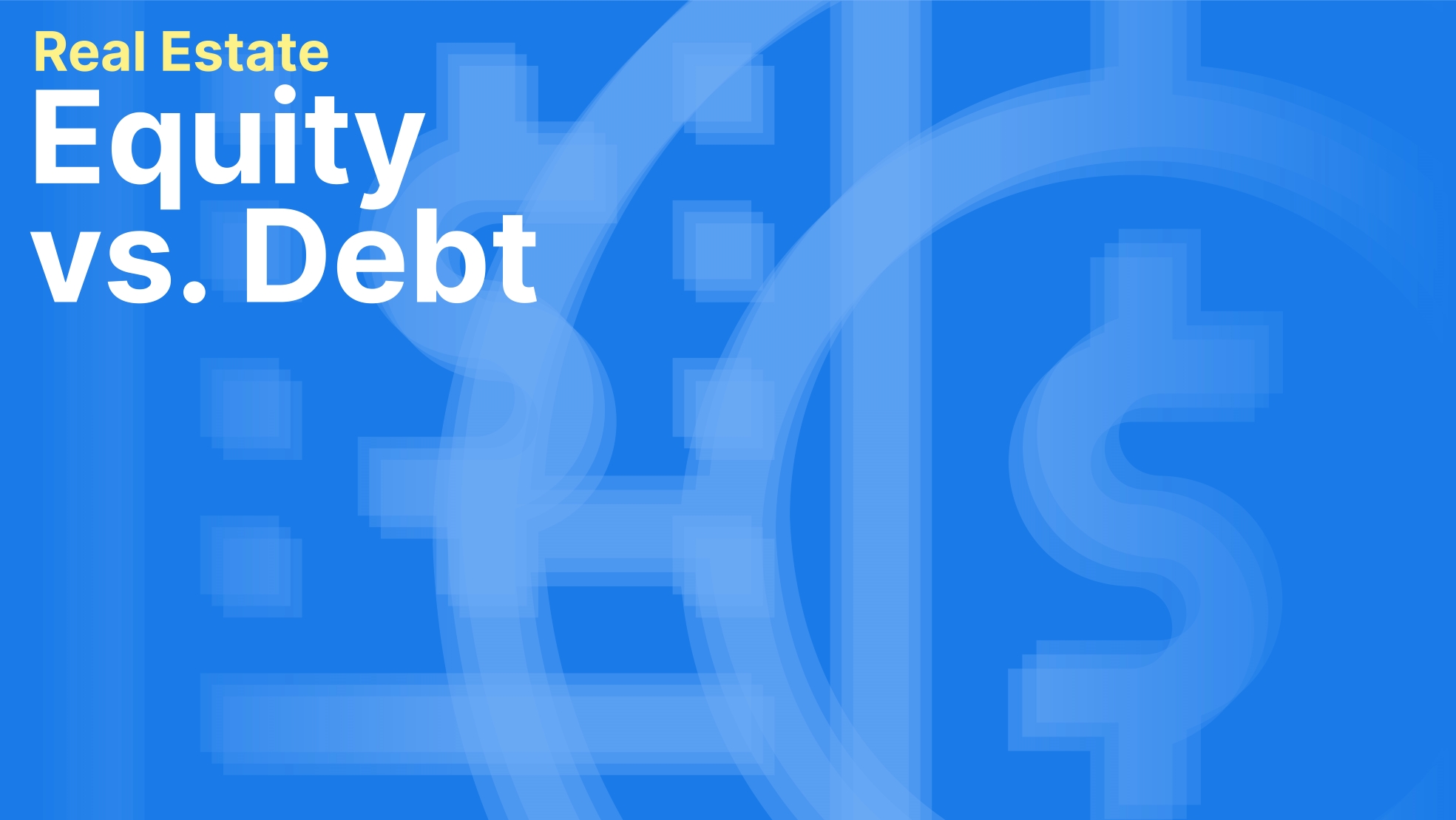Equity vs. Debt

Equity and debt investing are two main approaches in real estate. Understanding the differences is essential for informed investment decisions. This article discusses equity vs. debt investing in real estate, their characteristics, and factors to consider when choosing between them.
Equity Investing in Real Estate 🏠
When you invest in equity, you buy ownership shares in a property. As an equity investor, you profit from rental income and property appreciation over time. However, you also share risks like market fluctuations, vacancies, and property damage.
Equity investing offers benefits like higher returns, tax advantages, and more control over property management. For instance, you can influence decisions about maintenance, tenant selection, and rent pricing. On the downside, it involves higher risks, more involvement in property management, and lower liquidity. Your returns can be sensitive to market conditions, taking longer if the property needs improvement or the market appreciates slowly.
Debt Investing in Real Estate 📜
Debt investing involves lending money to property owners or developers, typically through mortgages, loans, or real estate-backed securities. As a debt investor, you earn interest on the loan and have the the property as collateral. However, you don’t benefit from the property's appreciation in value.
Debt investing provides steady income, lower risk exposure, and higher liquidity than equity investments. With debt investments, you have a clearer understanding of expected returns based on interest rates and repayment schedules. However, it has limited return potential, and borrower default may lead to foreclosure and investment loss. Interest rate fluctuations can also affect the value of debt investments. Additionally, debt investors may also have limited control over property management, as they primarily focus on loan repayment.
Choosing Between Equity and Debt Investing 🧭
When deciding between equity vs. debt investing in real estate, consider factors like risk tolerance, investment goals, and time horizon. Equity investments, riskier but with greater returns, suit investors with higher risk tolerance and long-term appreciation goals. Debt investments offer stable income, lower risk, and appeal to conservative investors or those with shorter time horizons.
Conclusion 🏁
Understanding equity vs. debt investing differences in real estate is crucial for aligning investments with goals and risk tolerance. Assessing characteristics, benefits, and risks of each method helps choose the investment approach fitting your objectives and preferences.
In the next lesson, we'll explore how much to invest in real estate, helping you further refine your strategy.